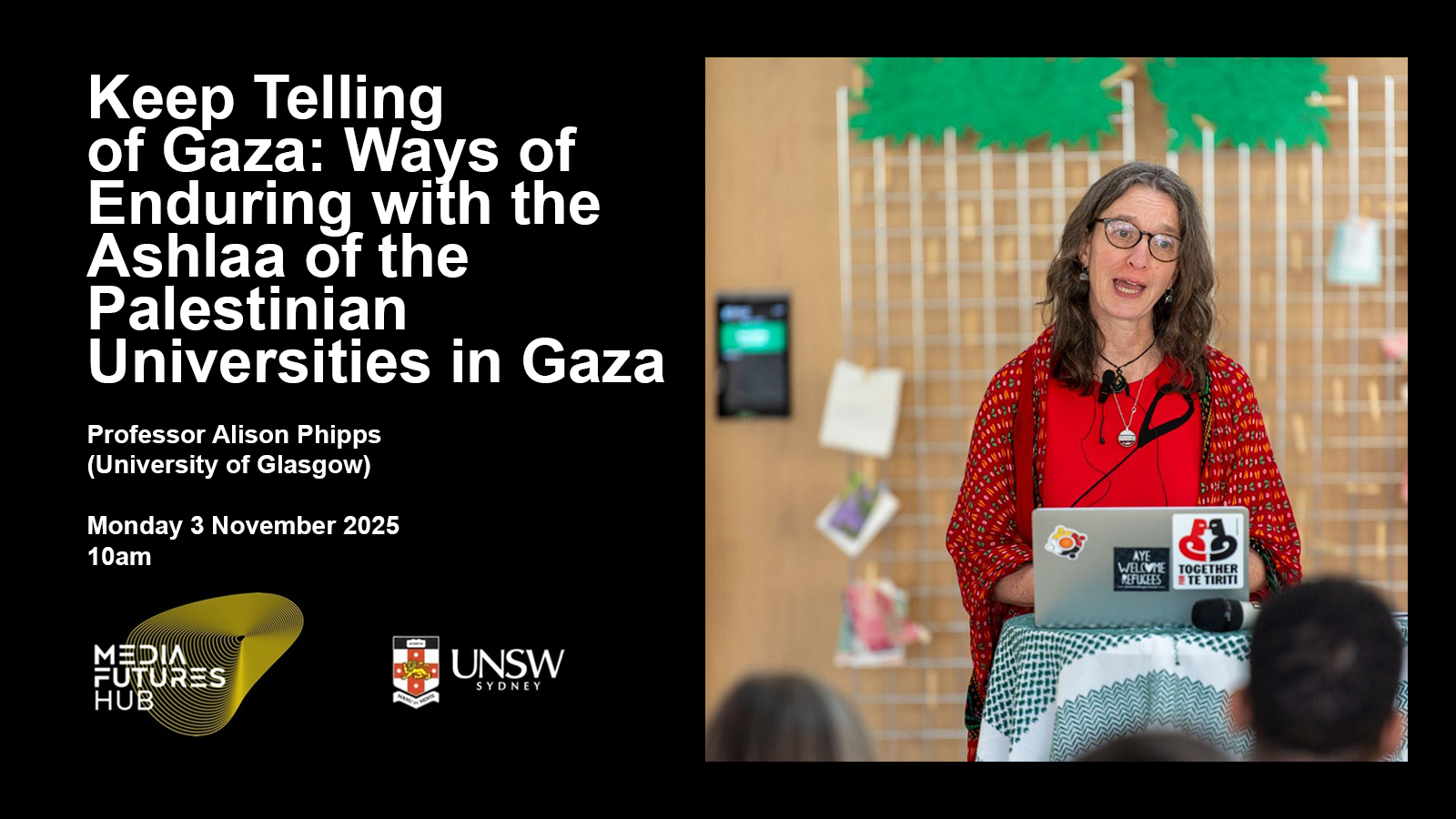Seminar and screening: Alison Phipps, ‘Keep Telling of Gaza: Ways of Enduring with the Ashlaa of the Palestinian Universities in Gaza.’
Monday November 3, 2025
10am-1pm
On International Education Day 2025 Palestinian students and academics released a film of testimonials of hope documenting their enduring commitment to studying and to providing education. https://www.youtube.com/watch?v=G5MmIDc1LXE
The film reflects the experiences of the UNESCO Chair for Refugee Integration through Education, Languages and Arts in working through the scholasticide with students and academic staff, since they resumed teaching in March 2024, despite the worsening conditions of the Israeli occupation and genocidal campaign.
In this seminar Alison will briefly contextualise her present work with Gaza by outlining the work undertaken previously, before focusing on the actions being taken in the present to enable students and academics to resume their studies, to work with the overwhelming scale of loss, ashlaa, destruction and mourning for fellow students and academic teachers, and to enable a fragile, networked infrastructure to form through the work of solidarity with global movements and with international universities.
In particular, she will focus on the work of Amani Al Maqdaha and Sultan Barakat in their vital reports on the needs assessment and leadership requires for rebuilding higher education; on the University of Glasgow and Qatar Summits and the work of the Royal Society of Edinburgh to document actions universities are taking, can take and where there are critical barriers. She will also refer to two articles she has recently published in Curriculum Perspectives and Language and Intercultural Communication, and to her best selling book of poetry Keep Telling of Gaza, with Khawla Badwan.
She will be accompanied in the seminar by her colleague Dr Tawona Sitholé who has worked as Research Associate and Lecturer in Creative Practice Education and co-editor with Alison and with Dr Hyab Yohannes, of Cultures of Sustainable Peace, an open access book containing several chapters published by colleague in Gaza during the scholasticide. Tawona is a poet and will bring his words to the seminar as counter point.
Alison Phipps is the UNESCO Chair in Refugee Integration through Education, Languages and the Arts at the University of Glasgow and Professor of Languages and Intercultural Studies. She was De Carle Distinguished Visiting Professor at Otago University, Aotearoa New Zealand 2019-2020, Thinker in Residence at the EU Hawke Centre, University of South Australia in 2016, Visiting Professor at Auckland University of Technology, and Principal Investigator for AHRC Large Grant ‘Researching Multilingually at the Borders of Language, the body, law and the state’; for Cultures of Sustainable and Inclusive Peace, and was Co-Director of the Global Challenge Research Fund South South Migration Hub 2019-2024. She is an Ambassador for the Scottish Refugee Council. She received an OBE in 2012 and Honorary Doctorates from the University of Edinburgh, and the University of Waterloo, Canada in 2023. She is an academic, activist, educator, essayist and published poet and a member of the Iona Community.
This talk is hosted by the UNSW Media Futures Hub.


